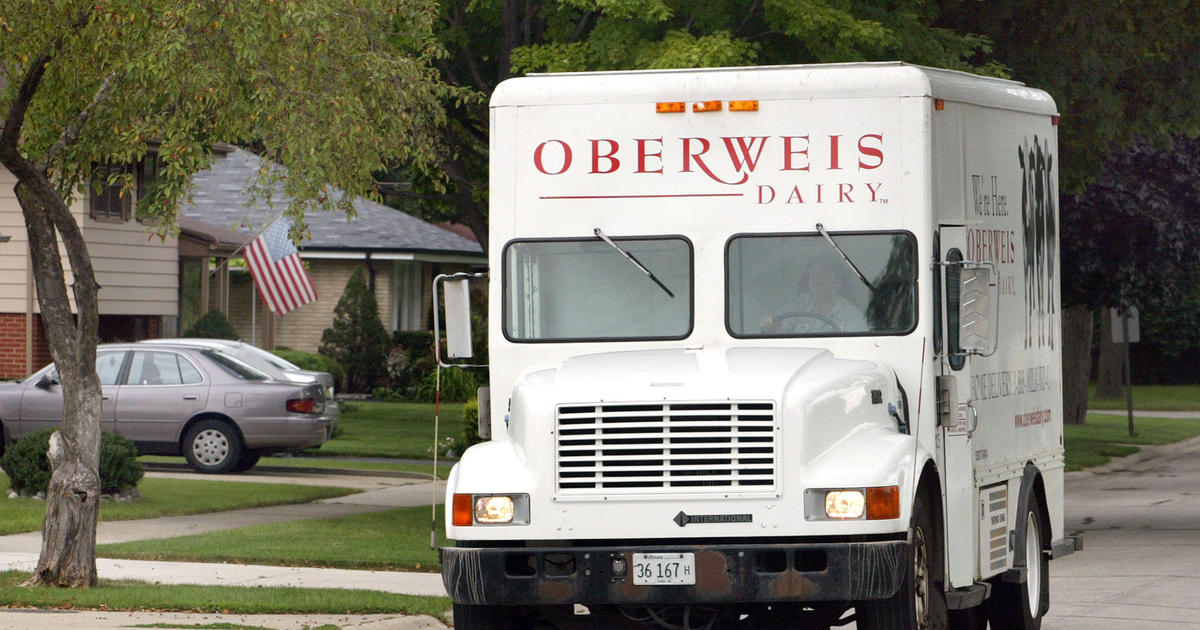How Trump's Trade War Is Already Costing Consumers
(CBS) -- This is how a trade war begins. The Trump administration imposed a 25 percent tax on $34 billion worth of Chinese imports July 6, mostly on parts imported to manufacture U.S. goods. China retaliated with taxes on an equal amount of U.S. products, including soybeans, electric cars and pork. Another $16 billion in U.S. tariffs on Chinese goods may take effect at the end of July. And Mr. Trump is threatening hundreds of billions more.
The current China-U.S. tit-for-tat comes on top of U.S. steel and aluminum tariffs on imports from allies including the EU, Canada and Mexico. All three struck back with tariffs on U.S. exports of products including blue jeans, motorcycles, whiskey, and even ketchup.
That costs U.S. companies money. So even if a company has enough pre-tariff supplies stockpiled or is protected by a contract for imported goods to make its products, eventually tariffs will catch up with them.
That means consumers will ultimately pay, no matter if companies figure out ways to avoid some higher costs by shifting suppliers or supply chain routes, according to an analysis from Peterson International Institute of Economics.
Here's a list of goods whose prices are already up or are expected to rise shortly:
Everyday consumer goods
Goods that use parts for products subject to Mr. Trump's tariffs and made in the U.S. will eventually cost consumers more as manufacturers are forced to pass on the higher cost, according to the National Retail Federation.
The tariffs enacted last week will push prices higher for tool sets, batteries, remote controls, flash drives and thermostats, the NRF said in a statement last week.
"And students could pay more for the mini-refrigerator they need in their dorm room as they head back to college this fall," the group said.
Housing
Tariffs on Canadian lumber are adding about $9,000 to single-family home prices and more than $3,000 to multifamily homes, Randy Noel, chairman of the National Association of Homebuilders said last month.
Some companies can shield themselves, for now, with long-term contracts already in place for materials. Lennar (LEN), a major publicly traded U.S. homebuilder, said on a June 26 earnings call that it's protected by its existing national contracts from most rising costs tied to tariffs, like an increase of "a few hundred dollars per home" in steel bars used to reinforce concrete.
"To a lesser extent, there are some minor increases in products such as garage doors, screws and nails," Chief Operating Officer Jon Jaffe told investors.
Washing machines
Whirlpool (WHR) is hiring 200 more workers and praised the initial tariffs that went into effect in January, citing its long-running battle with Korea's LG.
But by April, the price of washing machines was up 9 percent, according to the U.S. Bureau of Labor Statistics. In May, prices climbed 6 percent. Both are the biggest jumps since the BLS started collecting statistics in 1977, according to the Washington Post.
Common electronics
Buyers in the U.S. will soon see price hikes on computers, phones, thermostats and "everyday items," according to the Information Technology Industry Council, a group that represents tech companies.
Hundreds of Chinese components that the Trump administration penalized are used to make everything from LEDs to sensors to printer and scanner components. When manufacturers pay more for their parts, the costs are typically passed on to consumers, the ITI said.
Your Chick-fil-A sandwich
North American Food Equipment Manufacturers Association Vice President Charlie Souhrada told the Associated Press that tariffs may raise the price of pressure cookers made by one of its members, Henny Penny. Chick-fil-A uses the cooker for its sandwiches. The administration has placed "these import taxes squarely on the shoulders of manufacturers and by extension consumers," Souhrada told the AP in a recent interview.
Autos
Consumers may see an average price increase of $5,800 if a 25 percent import tariff that Mr. Trump has threatened goes into effect, according to estimates citedby the Alliance of Automobile Manufacturers (AAM), a lobbying group for carmakers.
That's a "$45 billion tax on consumers," the group said, citing an analysis of Commerce Department data.
America's top-10 best-selling vehicles will each come with a bigger price tag in a range from just under $1,000 to more than $3,600, according to AutoWise, an auto buying service.
Harley-Davidson motorcycles
European counter-tariffs are forcing Harley-Davidson (HOG) to move some factories to Europe to avoid these levies put in place to retaliate for Mr. Trump's steel and aluminum tariffs.
Harley-Davidson said that it won't raise its prices due to "an immediate and lasting detrimental impact to its business in the region," although the tariffs are adding about $2,200 in costs per motorcycle exported from the U.S. to the EU. That means Harley is absorbing those higher costs, at least for now.
Farm products
Zippy Duvall, the American Farm Bureau president, told Fox Business News July 6 that farmers are "already in a very bad farm economy," citing a February U.S. Department of Agriculture prediction that 2018 crop profits would drop 0.8 percent to $188.2 billion, a 12-year low. That largely reflects lower prices, according to a USDA presentation.
Farmers, while supportive of Mr. Trump on many fronts, need stability, Duvall said, so they know when to harvest and when their operating loans to run their farms must be repaid to avoid going out of business.
"There are some harvests going on in South Texas. And as the months and days go on, the harvesting will move north into the heartland of America, and that will be a very difficult time if we don't fix or find some solutions to our trade issues," he said.
But China may not be able to avoid buying at least some soybeans, the biggest U.S. crop export, Axios reported. That's because other producing countries, like Brazil, can't match the U.S.'s capacity. That could ease at least some of the pain of China's tariffs for U.S. soybean growers.
However, wheat growers are already feeling the pinch. Chinese wheat buyers stopped making purchases in March after Beijing threatened a 25 percent tariff in retaliation for U.S. tariffs on Chinese imports, the National Association of Wheat Growers said July 6.
On June 1, a farmer with 1,000 acres of corn and soybeans expected a $42,000 return. Today that return has dropped to a negative $126,000, said Christopher Hurt, an agricultural economist at Purdue University.
CBS MoneyWatch reporter Jill Harding contributed to this story.



